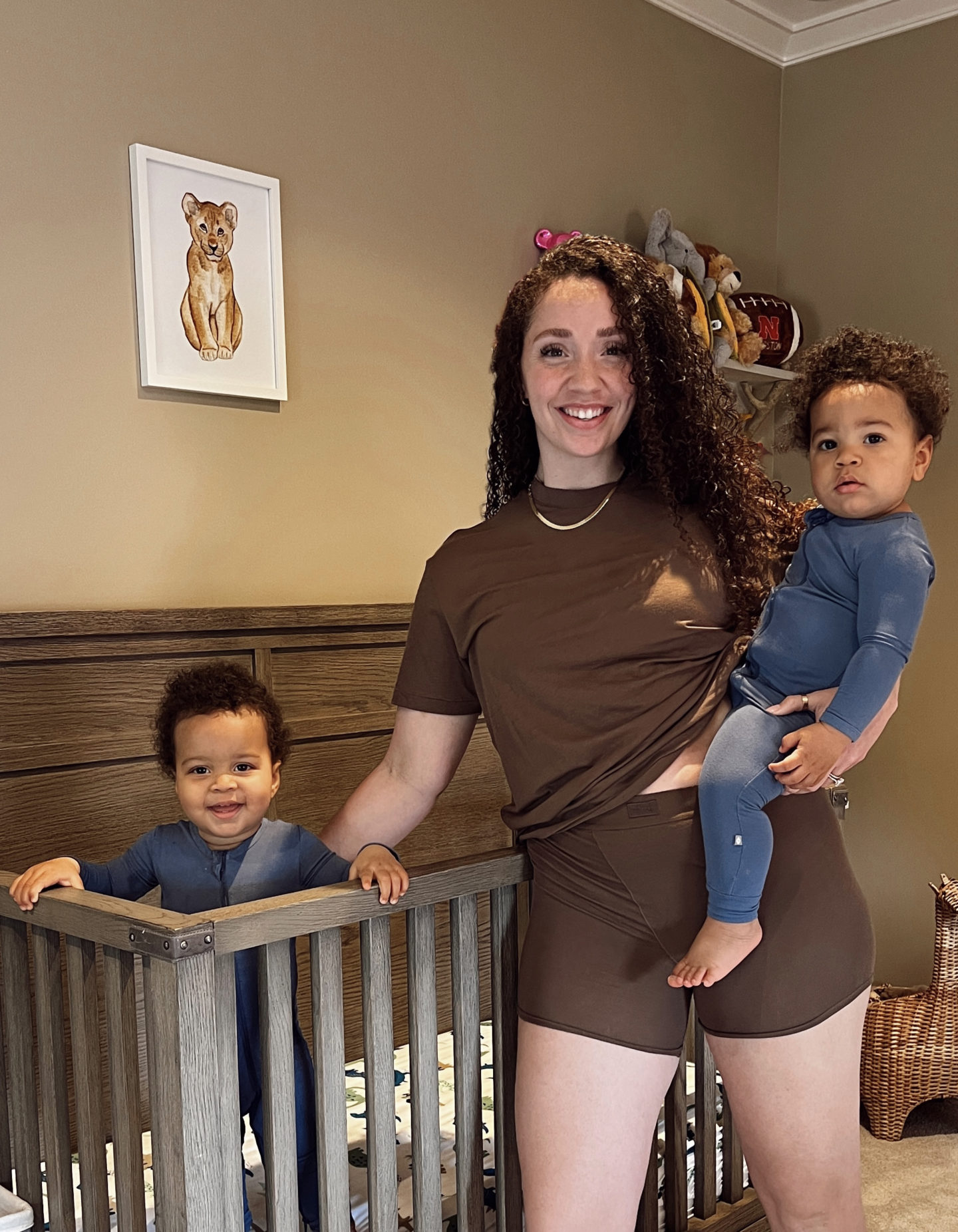As a new parent, getting your babe on the right sleep schedule is paramount to your mental health. But what about as they grow? Studies show that routines, diet, and environment also plays a role in your children’s sleep schedules as they age.
We hit up Jamie Dyce, executive director at Pajama Program – a nonprofit organization that promotes equitable access to healthy sleep so all children can thrive. She shared her tips on creating healthy sleep habits that start young.
Have a Routine
Research shows that having a bedtime routine can help you and your child sleep better. Routines are most important when children face uncertainty because of issues with health, housing, school, family, community, or anything that makes their lives unpredictable. Uncertainty can make it hard to follow a routine every night, but that is when it is most important! Choose relaxing activities to wind down and practice the same ones every day in the same order. This way, your child will know what to expect. Some examples include taking a warm bath, washing up, and of course, changing into cozy pajamas and reading a bedtime story.
Got Worries? Schedule Worry Time!
Children often cope with worries or anxieties by keeping busy during the day. But at night, when the lights are off and those distractions are gone, worries (like feeling anxious about school) can make it hard to fall asleep. Dr. Innessa Donskoy, Pediatric Sleep Medicine Physician at Advocate Children’s Hospital, encourages parents to set 10-15 minutes aside earlier in the day as “scheduled worry time.” This can be your child’s daily safe space for processing their worries. Dr. Donskoy notes, “This doesn’t have to be a problem-solving time, it is more of a release…For some, it is just talking through their worries with you. For others, it might be journaling, sketching, writing a song…anything to help them process their feelings.” This can help keep bedtime a time for peaceful relaxation.
Eat for Sleep
Be mindful of what your child eats in the hours before bedtime. Be sure to avoid sugary foods, large meals, and foods with caffeine (like chocolate) 2-3 hours before bedtime. If your child is feeling hungry close to bedtime, offer a light, healthy snack such as fruit, peanut butter and crackers, or nuts.
Be Aware of Hidden Caffeine
Children (and adults) like cool drinks and sweet treats. But beware, soda pop, tea, energy drinks, and chocolate are places where caffeine hides. Caffeine is a stimulant and it can stay in the body for a long time. When children eat or drink caffeine in the afternoon or evening, it can cause sleeplessness at bedtime. This makes the transition to sleep and wake time difficult, especially on school days. Consider drinks like water and white milk, and snacks like multi-grain crackers, cheese, peanut butter, and veggies as healthy, caffeine-free alternatives.
Create a Sleep Zone
Your child needs a cool, dark, and quiet place to sleep. The ideal sleep temperature is 68 degrees Fahrenheit. Try lighter pajamas or fewer blankets if adjusting a thermostat isn’t possible or convenient. Blackout curtains are useful if bright light leaks through regular curtains. White noise machines or soft, soothing music can help cancel out loud noises.
Turn Off Screens
Any device with a screen emits blue light that prevents the body’s natural production of melatonin, which regulates the circadian rhythm or the “body clock”. All screens should be turned off at least 30 minutes before bed. Bonus points if you can make the mattress, and even the whole bedroom, an entirely screen-free zone.
Get the Right Amount of Sleep
A common misconception is that children need 8 hours of sleep, like adults. Actually, young children need more sleep and have different sleep needs depending on their age.
Get Up at Around the Same Time Each Day
Older children usually stay up later and want to sleep later—this is normal. But having a consistent schedule is important.
Bedtime Routines are Best
Following a comforting bedtime routine with your child helps them wind down at the end of the day, connect with you, and feel safe and secure. Ads for melatonin are everywhere and it’s easy to get, but we don’t know how it affects children’s growth and development. Thousands of children end up in the ER each year from overdoses. Rather than using a pill, teach your child how to relax and have a good night’s sleep with a comforting bedtime routine. It will set them up for a life of good sleep habits!
We provide new pajamas and storybooks, sleep health education, and caring connections to ensure that children facing adversity—including low family income, housing insecurity, and family instability—have the tools they need for better bedtimes. Since 2001, Pajama Program has delivered over 7.5 million Good Nights for Good Days. Pajama Program leverages a national network of volunteers and partnerships with 4,000 community-based organizations across the United States, and also provides local programming in New York City, Atlanta, and metro-Detroit.
Pajama Program is a national 501(c)(3) nonprofit organization that promotes and supports a comforting bedtime routine and healthy sleep for children to help them thrive. It provides new pajamas and storybooks, sleep health education, and caring connections to ensure that children facing adversity—including low family income, housing insecurity, and family instability—have the tools they need for better bedtimes. Since 2001, Pajama Program has delivered over 7.5 million Good Nights for Good Days. Pajama Program leverages a national network of volunteers and partnerships with 4,000 community-based organizations across the United States, and also provides local programming in New York City, Atlanta, and metro-Detroit. Help a child facing adversity feel more secure at bedtime tonight.” Donate to Pajama Program here.









